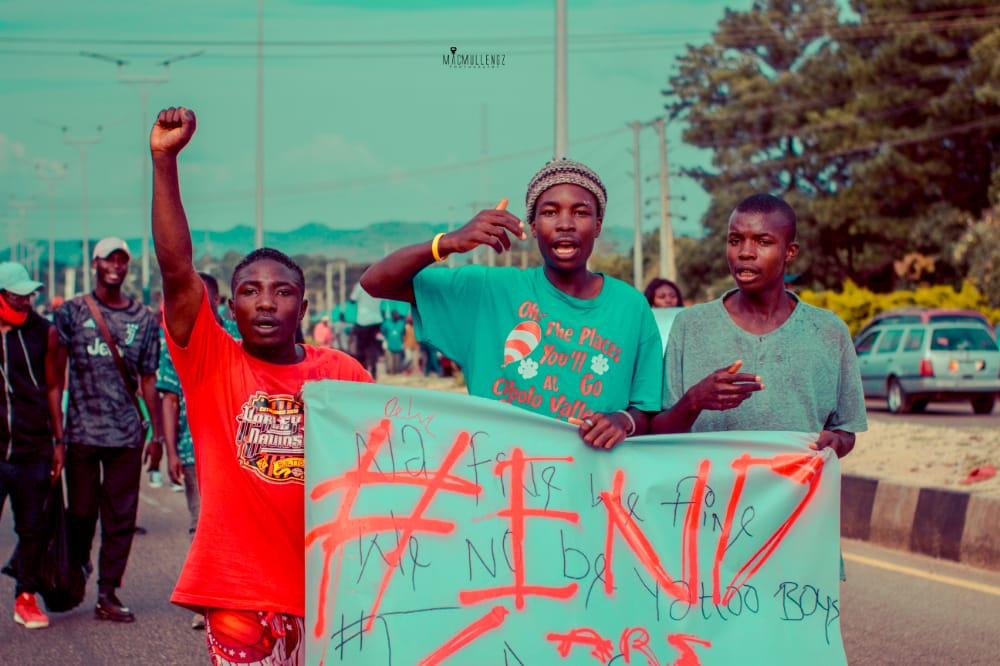JUST FOR THE RECORD
JEFF GODWIN DOKI
It is a statement of fact, and not a boast, that the writer, especially a visionary one, is not just a reminder, he/she is also a rememberer. In the precarious situation in which we have found ourselves today as a nation, it is only appropriate that we look back in the belief that looking back also means looking forward. If you accept this logic then join the train and let’s go.
Tunisia, a small African nation of fewer than five million people made history in 2011 when its citizens took to the streets in protest against an increase in the price of bread. It all started like this. President Ben Ali had ruled Tunisia for thirteen years. During this period, his regime completely failed to redistribute the wealth of Tunisia and tackle the problem of the vast disparity between the rich and the poor. Most parts of the country’s wealth was in the hands of the President and his immediate family and cronies. For example, his second wife owned the biggest business ventures in Tunis, the capital city. The Tunisians were not happy with this development and when the price of bread (their common food) soared above the reach of the common man, they revolted. The Tunisian uprising was a success because it achieved the desired result: President Ben Ali was forced to step down from power and flee the country with members of his family. In other words, united in their hunger and poverty, the Tunisians were able to upturn an unjust social order.
Two days after the success of the oppressed citizens in Tunisia, it was the turn of Egypt. It is very clear to any man/woman with two eyes that apart from Nigeria and South Africa, Egypt is the third largest country on the African continent. This is as much as to say that Egypt is the largest and most powerful Arab country. Egypt has three major cities namely: Cairo, Alexandria and Suez. It is also a bilingual nation with Arabic and English language playing national and official roles. The former Egyptian President, Hosni Mubarak, had ruled for thirty years and was not willing to relinquish power. The Egyptians, emboldened essentially by the success of the Tunisian uprising, took to the streets proclaiming that they have had enough of Mubarak’s tyranny and misrule. President Mubarak, furious with rage, mounted the podium and warned that Egypt was not Tunisia or Lebanon. He also threatened to crush any Egyptian citizen who will protest against his regime. At a point, the Egyptian police could not quell the uprising and the Egyptian army was called in to effect a truce. But despite heavy military presence, the protesters remained on the streets demanding that President Mubarak must step down. The demonstrators even defied the curfew imposed by Mubarak’s government. Just like the Tunisians the Egyptians were angry and hungry. They continued with the protest for eighteen days. At the end of it all, it was victory for the protesters and the oppressed. Hosni Mubarak was forced to relinquish power.
But it is Libya’s story that presents the most exciting paradox on the African continent. In Libya, Col. Mummar Gaddafi had ruled the country for a period of forty-two years and when the Libyans took to the streets demanding for a change of government, the maximum ruler ordered his army to open fire on the protesters. When the international community condemned his dastard actions, Gaddafi showed defiance. But more than that, Gaddafi went to the state television and threatened he will cleanse the protesters and that the country will know no peace except all the citizens throw their weight behind him. Again, just like in Tunisia and Egypt, Gaddafi was defeated and it was a victory for the masses.
It is almost ten years now since these uprisings on the African continent and we are confronted with ENDSARS protests in almost all major cities of Nigeria. Apparently, the ENDSARS protests are beyond police reform. From what we see, so far, the protests make the suggestion that there is a lot of food in our granaries but the food has been stolen by a few kings and queens while the majority of the citizens starve and hit their heads against church walls daily looking for divine assistance. Or, to put it another way, the ENDSARS protests are an indication that in Nigeria warehouses overflow with grains and other food crops waiting for people without money to buy them. But the young protesters are also saying that in Nigeria, University graduates have been reduced to porters mixing and carrying sand and cement on construction sites in major cities of the country. In one word, Nigeria as a country has been reduced to misery by selfish leaders whose theft and plunder of the nation’s wealth has completely impoverished the entire populace and made life more difficult than the pain that would have been inflicted by natural disasters. Taken together, the ENDSARS protests are pregnant. What will the protests deliver: baby or monster?
count | 28

Recent Comments
Mwanchuel Daniel PamMarch 8, 2024 at 11:06 pm
Bob WayasNovember 6, 2023 at 5:30 am
JosephNovember 5, 2023 at 3:47 am